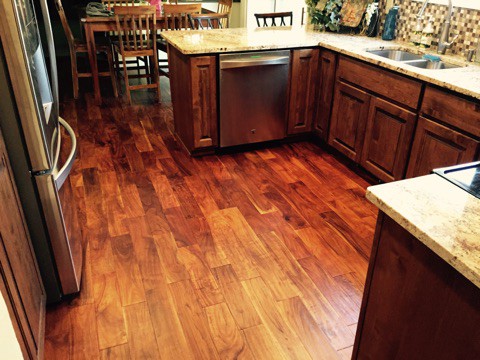Flooring and Allergies – Hypoallergenic Flooring Considerations
Creating a healthy and allergen-free home environment is a priority for many homeowners, especially those in Colorado, where seasonal allergies can be a common concern. One often overlooked aspect of achieving this goal is the choice of flooring. In this blog post, we’ll explore the impact of different flooring types on indoor allergies, providing insights into which options can help minimize allergens and enhance the overall air quality in your home.
**1. Hardwood Flooring:
-
Advantages: Hardwood flooring is a popular choice for allergy-conscious homeowners. Unlike carpeting, hardwood doesn’t trap allergens like dust, pet dander, or pollen. Its smooth and easy-to-clean surface makes it a less favorable environment for allergen buildup.
-
Cleaning Tip: Regular sweeping and damp mopping can effectively remove surface allergens, maintaining a cleaner indoor environment.
**2. Tile Flooring:
-
Advantages: Tile flooring, whether ceramic or porcelain, is hypoallergenic and resistant to allergen accumulation. Tiles provide a solid and non-porous surface that inhibits the growth of dust mites and mold, making it an ideal choice for allergy sufferers.
-
Cleaning Tip: Periodic vacuuming and mopping with allergen-friendly cleaning solutions help maintain a healthy indoor environment.
**3. Vinyl Flooring:
-
Advantages: Vinyl flooring, particularly luxury vinyl planks or tiles, is a resilient and low-maintenance option. Its smooth surface is easy to clean, preventing the accumulation of allergens. Additionally, vinyl flooring is less likely to harbor mold or mildew.
-
Cleaning Tip: Regular sweeping and occasional damp mopping contribute to a healthy indoor atmosphere.
**4. Laminate Flooring:
-
Advantages: Laminate flooring is a synthetic material that mimics the look of hardwood. It provides a smooth surface that resists allergen buildup. Laminate is also easy to clean, making it a suitable choice for allergy-conscious homeowners.
-
Cleaning Tip: Gentle cleaning with a damp mop and avoiding excessive moisture help maintain a clean and allergen-free environment.
**5. Carpet Flooring:
-
Considerations: While carpet flooring provides warmth and comfort, it can be a haven for allergens. Dust mites, pet dander, and pollen can accumulate in carpet fibers, triggering allergies in sensitive individuals.
-
Mitigation: Regular and thorough vacuuming, along with professional carpet cleaning, can help reduce allergen levels. However, it’s important to note that carpet may not be the ideal choice for those with severe allergies.
Conclusion:
Choosing the right flooring can significantly impact indoor air quality and contribute to a healthier living space, especially for individuals with allergies. Hardwood, tile, vinyl, and laminate flooring options offer hypoallergenic surfaces that are easier to clean and maintain. While carpet provides comfort, it requires diligent upkeep to minimize allergen accumulation.
Connect with Northern Colorado Carpets:
At Northern Colorado Carpets, we understand the importance of selecting the right flooring for your home. Our team of flooring experts is here to guide you through the process, offering personalized recommendations based on your lifestyle and allergy considerations. Transform your home into a haven of comfort and cleanliness. Contact Northern Colorado Carpets today to explore our wide range of flooring options and take the first step towards a healthier living space. Your well-being starts from the ground up!


Recent Comments